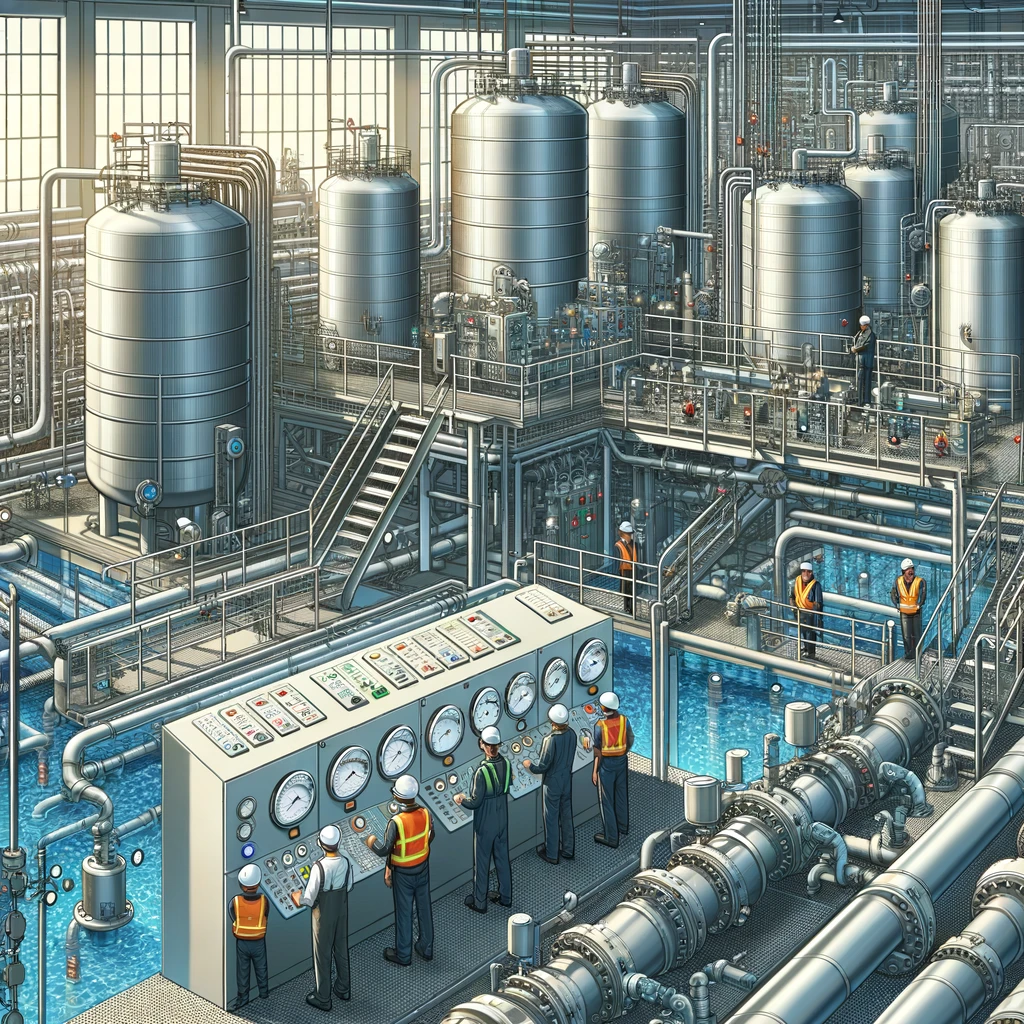Water is a vital resource in industrial processes, and its quality can have a significant impact on operations. The importance of water treatment in industrial processes cannot be overstated. The industry water treatment plant cleans and reuses water for consumption, manufacturing, or disposal. There are numerous advantages to having the wastewater treated. In this article, we will explore the significance and benefits of implementing water treatment in industrial processes.

Importance of Water Treatment in Industrial Processes
Clean and Reusable Water
Water treatment is the process of purifying and conditioning water so that it can be used in a variety of industrial applications. This includes the removal of impurities, contaminants, and pollutants that can degrade water quality. It is obvious that dumping even wastewater is harmful to the environment. As a result, any water that cannot be consumed even after treatment should be treated to prevent pollution of the environment. Furthermore, treating wastewater in an industrial water plant can provide clean water for reuse. It can be purified further for human consumption if necessary.
Protect Environment
Water contains a wide range of waste materials, including chemical components. The water released from the industrial sector contains a harmful chemical. The industrial water treatment plant will remove the water's harmful ingredients and chemical components. In this case. Two things will happen. First, the water can be reused for personal or industrial purposes. Second, you can help to reduce pollution in the environment.
Water as a Source of Diseases
Impure water can be a source of a variety of diseases, resulting in frequent illnesses, particularly during the monsoon season. Similarly, untreated wastewater or blackwater can harbour pathogenic bacteria that harm not only humans but also the environment, including trees, plants, and animals.
Produces Energy
Water has enormous untapped potential as a source of electricity. Power generated during the Water treatment process can be used to power industrial water treatment plants. This means that these plants can produce electricity while purifying water. Furthermore, any excess electricity can be sold to the national grid, benefiting the entire community.
Cost Reduction
The significant reduction in maintenance costs is one of the primary benefits of implementing water treatment in industrial processes. The treatment of natural water to remove minerals and other impurities is critical in preventing corrosion, resulting in a lower demand for maintenance and repairs while extending the equipment's lifespan. Furthermore, treated water contributes to energy cost savings by preventing and increasing productivity, reducing the need for maintenance and repairs.
Improved Product Quality
Treated water ensures that products meet quality standards. In industries such as pharmaceuticals and food processing, water treatment is essential for producing safe and high-quality goods.
Filtration is a common water treatment method that involves passing water through a medium that filters out impurities. Chemical Treatment, UV Disinfection, filtration, and Reverse Osmosis are the four main processes used in industrial water purification.
Filtration
Filtration is a common method of water treatment that involves passing water through a medium that removes impurities.
Chemical Treatment
Chemical treatment uses various chemicals to neutralise contaminants and ensure water quality.
UV Disinfection
Ultraviolet (UV) disinfection is an effective method for eliminating microorganisms from water.
Reverse Osmosis
Reverse osmosis is a process that uses a semi-permeable membrane to remove impurities from water.
Choosing the Right Water Treatment System
Selecting the appropriate water treatment system depends on the specific needs and characteristics of an industrial process. Consulting with water treatment experts can help industries make the right choice.
Today is the day to upgrade your industrial water treatment plant!
Do you want to improve the efficiency and effectiveness of your industrial water treatment plant? Contact us today to learn more about how our specialised wastewater treatment facility solutions can help you. Allow us to help you achieve better results, save money, and promote sustainability.
Conclusion
Water treatment plays an important role in industrial processes and cannot be overstated. It is an essential step in ensuring equipment longevity, product quality, and regulatory compliance. Industries may receive significant benefits while reducing the negative effects of impure water by investing in water treatment.
To explore solutions for treating your industrial wastewater, please visit the following link:
https://hydra-clear.com/pages/ro-water-design-and-build-specialists

